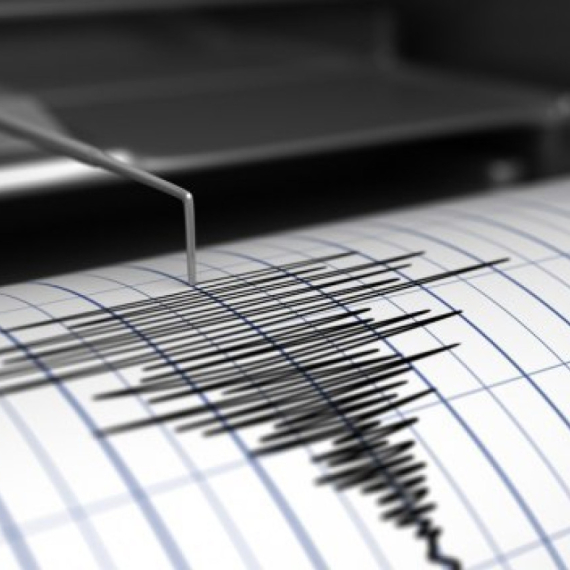PM announces plans to tackle financial crisis
The government has announced a set of financial measures to be taken in the coming period to ensure stability.
Monday, 20.10.2008.
09:42

The government has announced a set of financial measures to be taken in the coming period to ensure stability. The state will increase the guarantee for savings from EUR 3,000 to EUR 50,000 and will propose the abolishment of taxes on savings account interest rates in order to strengthen the financial sector. PM announces plans to tackle financial crisis According to Prime Minister Mirko Cvetkovic, taxes on savings will be temporarily abolished until the end of the 2009, as will capital gains tax. These measures were aimed at minimizing the impact of the world financial crisis, Cvetkovic explained. He said that there would also be discussions on whether to increase security on savings to EUR 100,000 if needs be. “The world crisis has had no effect in the short-term, but there will be funds in the 2009 budget for maintaining the stability of the banking system and supporting foreign investments if we see that the crisis is having a negative effect on the Serbian economy and financial system,” Cvetkovic said. The prime minister added that fuel excise would go up by four dinars per liter, and that next year excise would be raised on cigarettes as well, though he did not state by how much. Cvetkovic said that measures would also be taken regarding the gas price increases and also to postpone the increase in telephone prices. Mirko Cvetkovic (FoNet) Economists' view Economists Miodrag Zec and Miroslav Prokopijevic have harshly criticized the government’s economic policy, particularly when it came to the banking system. Ilic claimed that the banking system and customers’ savings were not a problem, adding that there was no rational reason currently to withdraw savings from banks. He said that one of the government’s measures would be raising the guaranteed level of customers’ savings in banks, though he did not wish to reveal the exact figure.“We’re seriously analyzing, for psychological reasons, because many countries have done so already. I think that during the course of the week the prime minister will announce our position as regards the increase of the guaranteed savings figure. As things stand, that level will be raised.” Zec, however, said that the problem was much bigger than it looked at first glance, and that the state had to address it much more seriously. He pointed out that foreign banks in Serbia were domestic legal entities, meaning that their financial guarantor were not the branches abroad, but the state. “They say ‘the state will pour that much or that much into the financial system’. I want our people to think about whose money it is that’s being poured in, where’s that tax payer’s money coming from. The state can generate money in two ways: tax, what the U.S. has done, and the other, inflation. There is no third source,” explained Zec. Market Research Center Director Prokopijevic believes that Serbian citizens are vulnerable, especially as, through long experience, they do not trust the state. “People here say—‘whenever there’s been a problem and we’ve trusted the state, it’s gone wrong: now I’ll withdraw my money, it’s safer with me.’ The Central Bank mustn’t say how much savings have been withdrawn, they say it’s a few hundred million, how much has it sold, where’s the other money,” said Prokopijevic. He said that the financial crisis will really hit Serbia when the dinar begins to be freely traded abroad. At that point, he believes, the euro-dinar rate will be double the value it is today.
PM announces plans to tackle financial crisis
According to Prime Minister Mirko Cvetković, taxes on savings will be temporarily abolished until the end of the 2009, as will capital gains tax.These measures were aimed at minimizing the impact of the world financial crisis, Cvetković explained.
He said that there would also be discussions on whether to increase security on savings to EUR 100,000 if needs be.
“The world crisis has had no effect in the short-term, but there will be funds in the 2009 budget for maintaining the stability of the banking system and supporting foreign investments if we see that the crisis is having a negative effect on the Serbian economy and financial system,” Cvetković said.
The prime minister added that fuel excise would go up by four dinars per liter, and that next year excise would be raised on cigarettes as well, though he did not state by how much.
Cvetković said that measures would also be taken regarding the gas price increases and also to postpone the increase in telephone prices.
Economists' view
Economists Miodrag Zec and Miroslav Prokopijević have harshly criticized the government’s economic policy, particularly when it came to the banking system.Ilić claimed that the banking system and customers’ savings were not a problem, adding that there was no rational reason currently to withdraw savings from banks.
He said that one of the government’s measures would be raising the guaranteed level of customers’ savings in banks, though he did not wish to reveal the exact figure.“We’re seriously analyzing, for psychological reasons, because many countries have done so already. I think that during the course of the week the prime minister will announce our position as regards the increase of the guaranteed savings figure. As things stand, that level will be raised.”
Zec, however, said that the problem was much bigger than it looked at first glance, and that the state had to address it much more seriously.
He pointed out that foreign banks in Serbia were domestic legal entities, meaning that their financial guarantor were not the branches abroad, but the state.
“They say ‘the state will pour that much or that much into the financial system’. I want our people to think about whose money it is that’s being poured in, where’s that tax payer’s money coming from. The state can generate money in two ways: tax, what the U.S. has done, and the other, inflation. There is no third source,” explained Zec.
Market Research Center Director Prokopijević believes that Serbian citizens are vulnerable, especially as, through long experience, they do not trust the state.
“People here say—‘whenever there’s been a problem and we’ve trusted the state, it’s gone wrong: now I’ll withdraw my money, it’s safer with me.’ The Central Bank mustn’t say how much savings have been withdrawn, they say it’s a few hundred million, how much has it sold, where’s the other money,” said Prokopijević.
He said that the financial crisis will really hit Serbia when the dinar begins to be freely traded abroad.
At that point, he believes, the euro-dinar rate will be double the value it is today.



























































Komentari 0